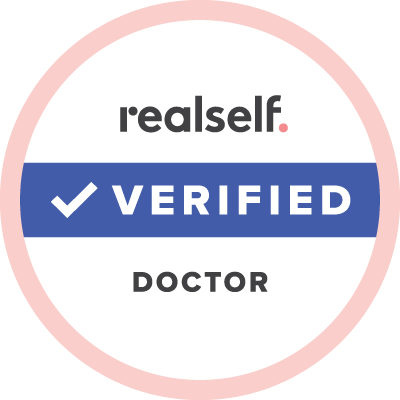Blog
Breast Implant Associated Anaplastic Large Cell Lymphoma
Posted November 30, 2019 in BIA-ALCLWhat is Breast Implant-Associated Anaplastic Large Cell Lymphoma (BIA-ALCL)?
BIA-ALCL stands for Breast Implant-Associated Anaplastic Large Cell Lymphoma. BIA-ALCL is a type of non-Hodgkin’s lymphoma, which is a cancer of the immune system. BIA-ALCL is not breast cancer. In many cases, BIA-ALCL is found in the scar tissue and fluid around the implant, which can spread throughout the body. The risk of BIA-ALCL is considered low, but it is vital to know the facts surrounding this issue.
This is a very rare and highly treatable type of lymphoma that can develop around textured breast implants:
- Typically, it develops between 8 and 12 years after textured implants are placed.
- It can occur with either saline or silicone textured implants.
- As of March 2023, NO cases have been reported when only smooth Implants were used; therefore, the risk lies exclusively with textured implants.
- BIA-ALCL is both extremely rare and highly treatable.
- As of July 2019, the risk for development of this disease is estimated between 1 per 3817 women to 1 per 30,000 women.
What Do You Need to Know About BIA-ALCL?
- Textured implants have been recalled or banned in over 40 countries.
- Allergan textured implants were recently recalled in the US.
- As of September 2023, there are 420 confirmed cases in the US and 1,360 cases worldwide, diagnosed in patients aged 24 to 90.
- 84% of confirmed cases were from Allergan textured implants removed from the market.
How Is BIA-ALCL Diagnosed?
- Fluid formation around the implant occurs in 49% of diagnoses, pain and swelling of the breast in 23%, capsular contracture in 13%, or a palpable mass in 1%.
- If a patient is asymptomatic (none of the above problems), it is very unlikely they have BIA-ALCL
How Can You Test For BIA-ALCL?
- If you have no symptoms, there is no need to panic.
- If you give your breasts a self-examination and discover a palpable lump, hardness around the implant, or experience pain and swelling, schedule an appointment with your plastic surgeon or set up an MRI
What Is BIA-ALCL Treatment?
- Schedule a consultation with me or any board-certified plastic surgeon
- If needed, an ultrasound and/or MRI will be ordered
- The treatment is called an en-bloc capsulectomy and Implant removal (where both the implant and the capsule/scar tissue around the breast implant are removed in one piece.) The critical consideration is to remove the capsule around the implant completely.
ARE YOU CONCERNED ABOUT YOUR IMPLANTS, OR KNOW SOMEONE THAT IS?
Do you have smooth or textured implants?
- If you are not having symptoms – this is not an emergency. If you have the classic symptoms of atypical breast enlargement (typically double in size), a lump in the breast, or a fluid collection, you will want to see a plastic surgeon urgently.
- If you have smooth implants– there has never been a case of BIA-ALCL with smooth implants. However, if you have symptoms or concerns, schedule an elective appointment to discuss further with your Plastic Surgeon.
- If you have textured implants – do you know the manufacturer/company that made your implants?
- Mentor or Sientra textured implants have not been recalled and have a much lower rate of this malignancy. That said, if you would like to come in and discuss this, schedule an appointment.
- Allergan textured implants have been recalled as they have an unacceptably high rate of BIA-ALCL. The FDA is not recommending removal at this time. However, even if you are not having symptoms, you may want to consider removing your implants (and capsules) to minimize your risk in the future. Schedule a consult with a surgeon you trust.
- All textured implants have some risk of this malignancy. The FDA is not recommending removal at this time. However, even if you are not having symptoms, you may want to consider removing your implants (and capsules) to minimize your risk in the future. Schedule a consult with a surgeon you trust.
If you don’t know what kind of implants you have:
- If you are a patient of Dr. Spies, Call (480-890-0600) or email the office at office@azplasticsurgerycenter.com. We will do everything we can to help you determine your implant type.
- For legal reasons, your medical records are retained for seven years and then often stored or even destroyed. Most practices will do everything that we can to help identify your implants.
If your records are no longer on file:
- You can call either Mentor, Allergan, or Sientra with your surgical date, and they can try and assist in finding you in their implant database.
We genuinely hope that this has been informative and helpful. We are here to answer questions and assist in any way we can.
Sincerely,
Robert J. Spies, MD


